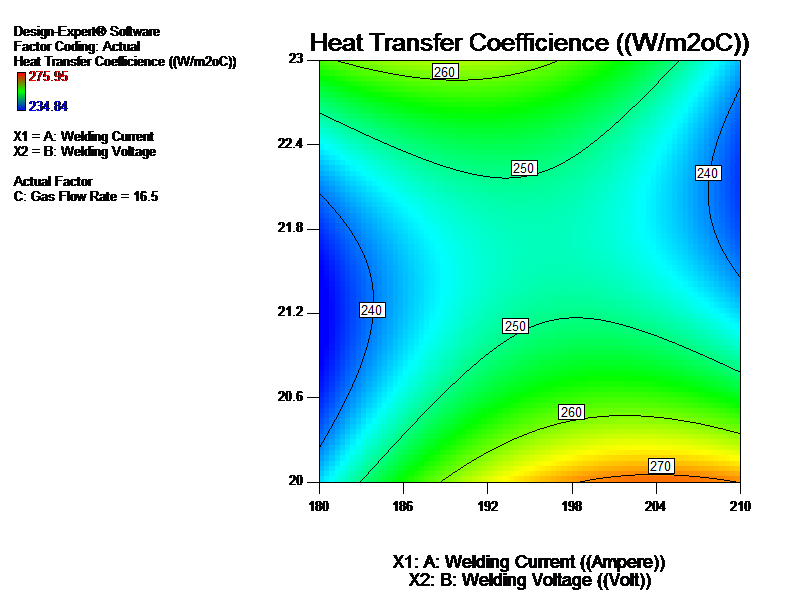Numerical Prediction and Optimization of Heat Transfer Coefficient and their Effects on Low Carbon (Mild) Steel Weldments using Expert Methods
Keywords:
Mild Steel, TIG, Heat Transfer Coefficient, RSM, ANN.Abstract
The purpose of this study is to develop a model that will optimize (minimize) the heat transfer coefficient of mild steel weldment using Response Surface Methodology (RSM) and Artificial Neural Network (ANN). The process input parameters are welding current, welding voltage, and gas flow rate, while the response variable is heat transfer coefficient. Tungsten inert gas (TIG) welding process was used to produce the welded joints. Optimizing this parameter is one sure way of producing a good weld with the desired strength and quality. From the RSM analysis, the optimal solutions for the process input parameters are; welding current, 180.00Amps, welding voltage, 21.672Volts and gas flow rate, 15.504L/min. The optimal solution for the response variable is 238.819W/m0C. The Desirability of achieving the Optimum solution results is 83.62%. From the analysis of variance (ANOVA), it was observed that gas flow rate (GFR) has more significant effect on the response variable. The ANN analysis predicted an optimal solution for the response variable to be 256.663W/m2oC, with an overall strong correlation (R) between the input factors and the response variable to be 99.893%. Therefore, it is recommended that the models be used to navigate the design space. But, the optimal solutions of the artificial neural network (ANN) analysis (ANN) are better and more robust because of its higher Regression (R) value, and therefore recommended for application and use, and for systematic decision making.


